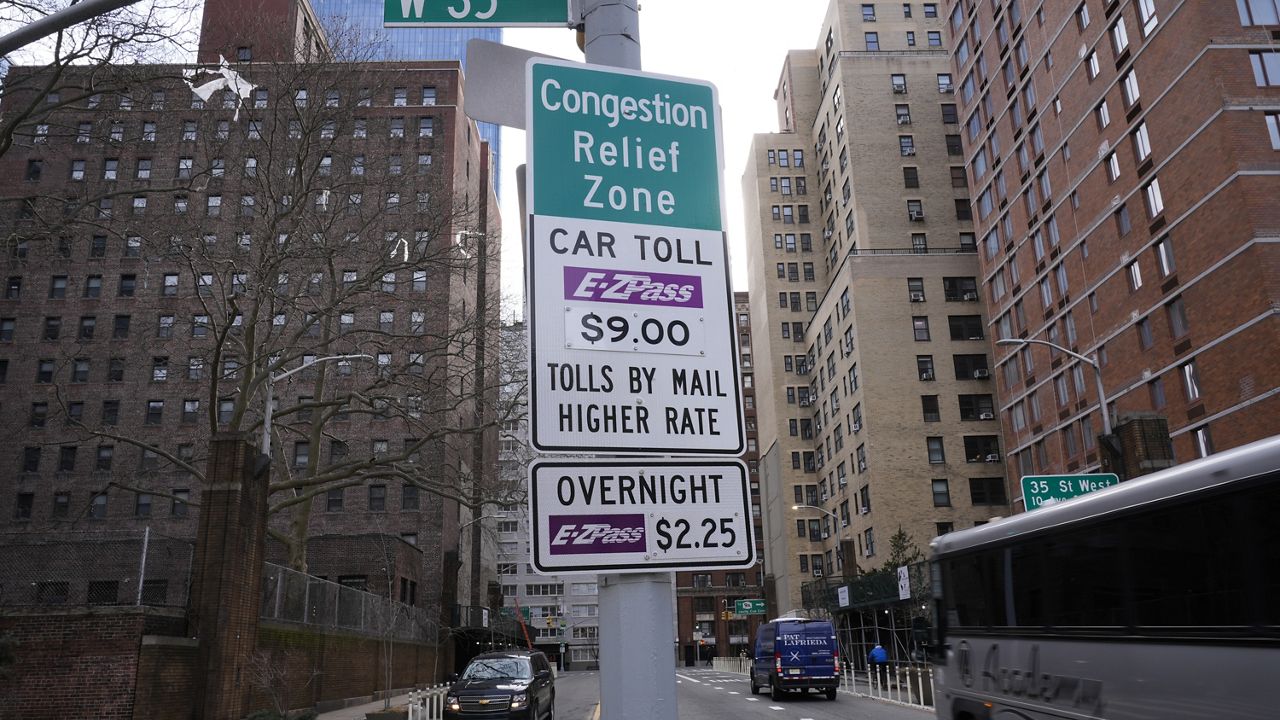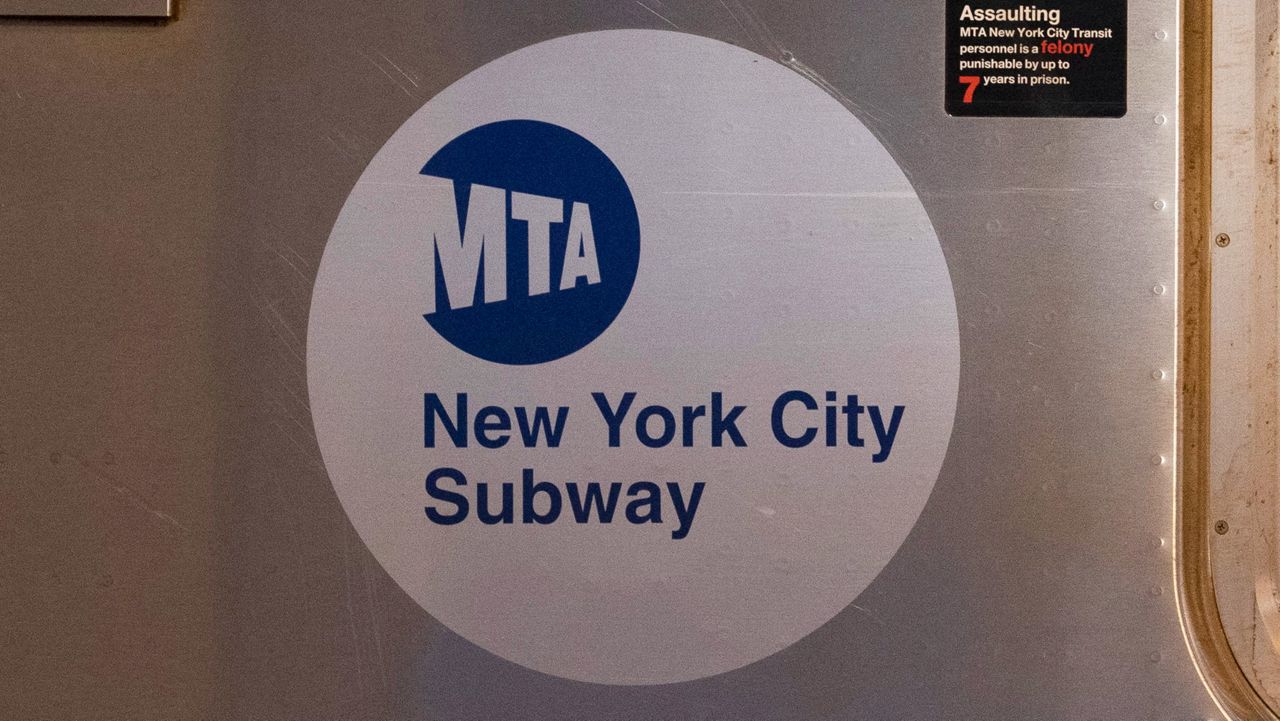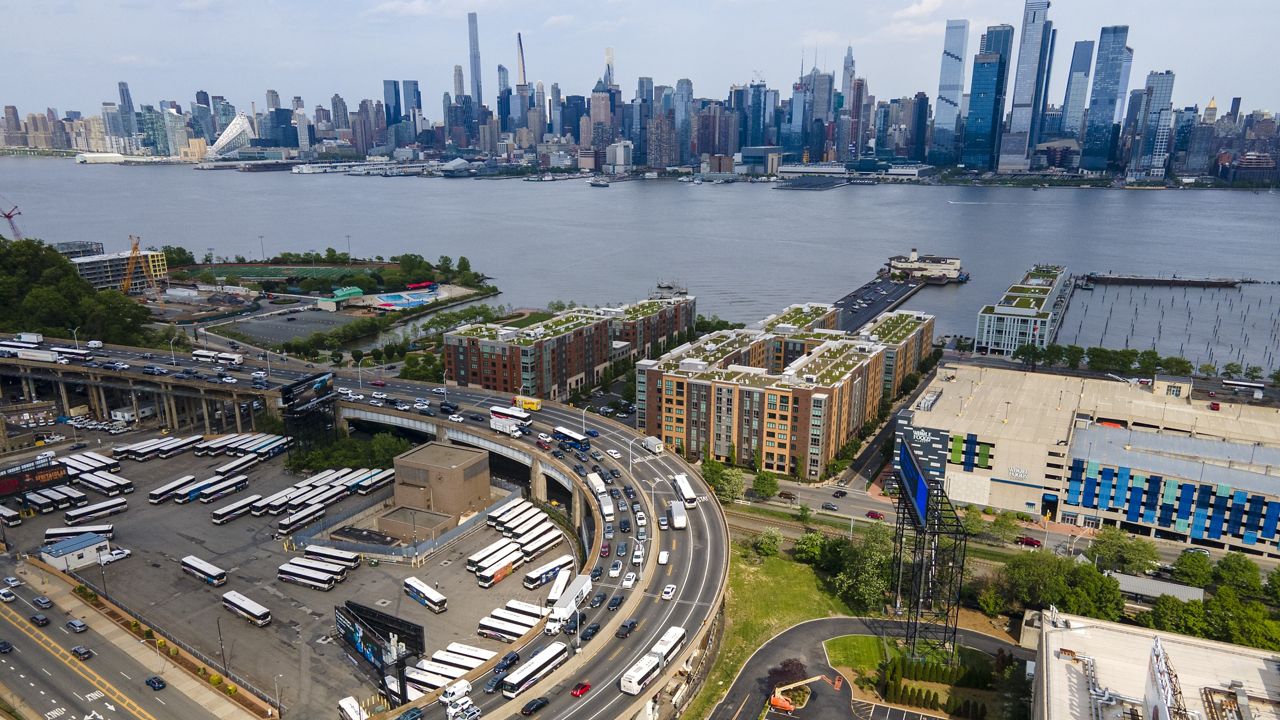Federal regulators have signed off on the city's congestion pricing plan, Gov. Kathy Hochul said Tuesday.
The Federal Highway Administration on Monday gave final approval to the proposal to charge drivers to enter Manhattan below 60th Street. At a news conference Tuesday afternoon, Hochul said congestion pricing will allow the city to "achieve cleaner air, safer streets and better transit."
While the MTA has not yet set an exact price for the toll, the proposed range is between $9 and $23 per day.
Officials have said the program could begin as early as spring 2024.
In a statement released Monday, Hochul said congestion pricing "will reduce traffic in our crowded downtown, improve air quality and provide critical resources to the MTA."
"With the green light from the federal government, we look forward to moving ahead with the implementation of this program," she added.
The tolls are aimed at generating $15 billion for the MTA's capital plan, alleviating traffic congestion and funding improvements to the city's public transit system.
The controversial plan passed in the state Legislature in 2019. But the program has since faced significant delays, and opponents say it remains very unpopular in boroughs outside Manhattan.
Critics say tolling cars amounts to a regressive tax, hitting those who can least afford it the hardest.
Some lawmakers representing parts of Brooklyn, Queens and the Bronx with limited access to public transportation have argued that driving remains the sole feasible commuting option for many traveling into Manhattan.
Several lawmakers from New Jersey have also pledged to fight the plan, saying drivers from the state should be exempt from the fees, as they already pay tolls to use the Holland and Lincoln Tunnels and the George Washington Bridge.







_PKG_CONGESTION_PRICING_HISTORY_CG)